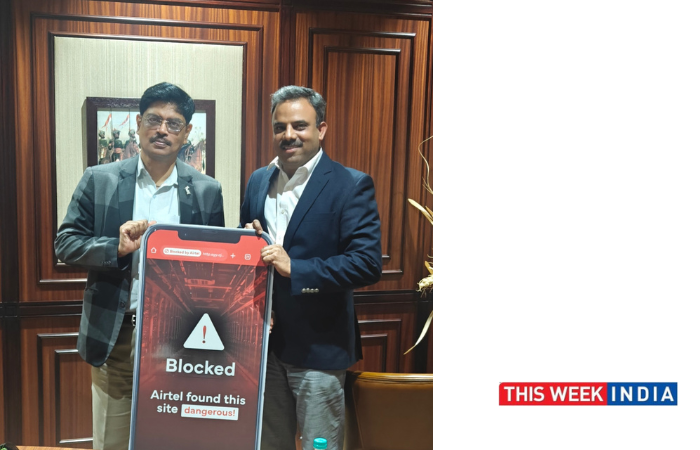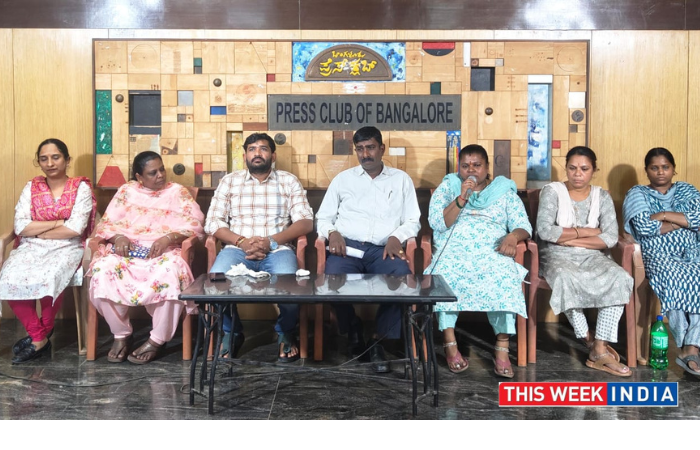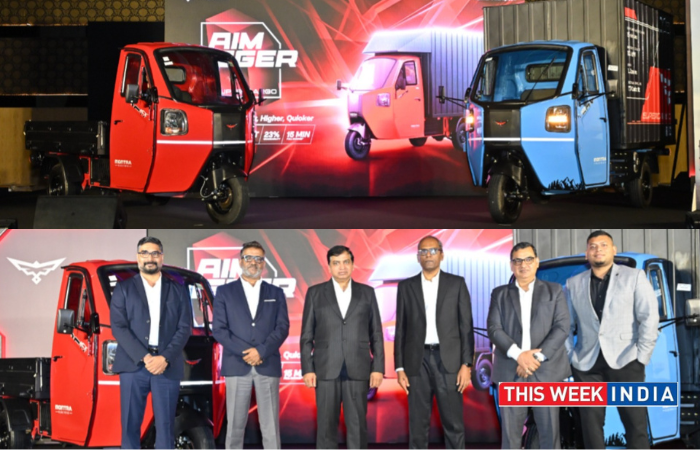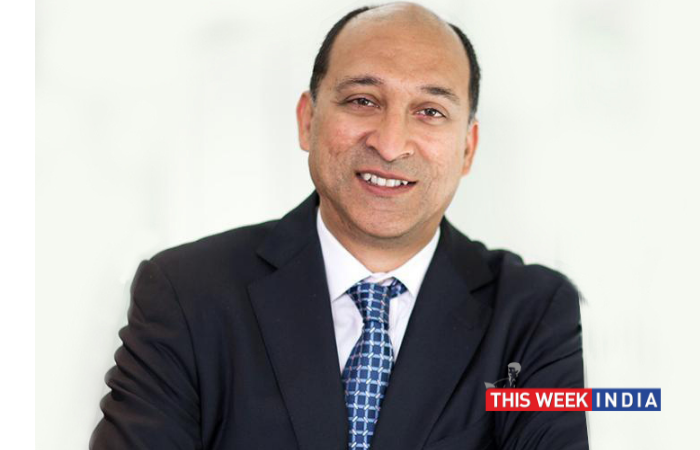The government has laid the groundwork to usher in next-generation reforms, steering the growth of India by providing a significant boost to infrastructure development and bridging the accessibility gap to fulfil the aspirations of its citizens. The commitment to education and skill development through successful initiatives like Skill India has offered training, skilling, and reskilling to millions, enabling them to acquire cutting-edge skills and secure employment opportunities. This will undoubtedly contribute to our collective economic resilience and competitiveness on the global stage. The government’s emphasis on technology, including the provision of 50-year interest-free loans, underscores its dedication to investing in Deep Tech, requiring substantial investment and highly skilled human capital. Enhancing the Girl Enrolment Ratio will empower females to enter aspirational fields and make significant contributions to various emerging sectors. Although the EdTech sector anticipated some tax incentives that could have benefited our learners, we remain highly optimistic about the upcoming full budget, expected to announce next-generation reforms, will address these concerns. We look forward to actively participating in providing excellence in education, transforming the Indian ecosystem, and contributing to holistic national development.
Anish Srikrishna, CEO, TimesPro
It was a promising interim budget! Honourable Finance Minister has provided a balanced outlook towards growth and promoting sustainability.
The invaluable focus on “Garib, Mahilayen, Yuva and Annadata” is a testimony to the government’s focus on protecting, uplifting, and promoting at the grassroots. Prima facie the tax rates have remained constant but the initiative to support tech-led youth and startup economy is remarkable. The PM Mudra Yojana that has sanctioned as many as 43 crore loans amounting to a whopping Rs. 22.5 lakh crore will build consensus with the ideology that is at the core of Viksit Bharat @2047. Although this budget has only earmarked major fund allocations, it is sure to boost confidence in the market and the market’s trust in the economy.
Siba Panda, Founder and Managing Partner, ValuAble
“The FY 2024-25 interim budget, announced by our Hon’ble Finance Minister, heralds a transformative phase for all industries, including Health-tech. The allocation of 50-year interest-free loans for technology-supported startups is commendable, poised to inspire youth, fostering innovation for groundbreaking healthcare solutions. The re-emphasis on ‘Anusandhan’ reflects a push for high-level strategic research, reinforcing the pharmaceutical industry’s commitment to tailored treatments for India’s diverse population. Further, the decision to expand medical educational institutions using existing hospital infrastructure underscores the government’s dedication to a skilled healthcare workforce, strengthening our healthcare system. The budget’s focus on maternal and early childhood healthcare, backed by new schemes, also promises improved outcomes. As a leader in healthcare transformation, Doceree wholeheartedly welcomes India’s persistent efforts to enhance healthcare efficacy through technology-driven initiatives.”
Dr. Harshit Jain, Founder & Global CEO, Doceree.
“The groundbreaking announcement of 50-year interest-free loans for innovation heralds a golden era for our tech-savvy youth, positioning India as a global hub for research and development.
Infrastructure projects, tourism initiatives, and expanded rail networks depict a nation gearing up for unprecedented development. The trinity of democracy, demography, and diversity takes center stage, propelling inclusive growth.
In essence, Union Budget 2024 lays a robust foundation for a holistic and empowered India, aligning with our collective vision of achieving developed nation status by 2047. Combined with investments in green energy, infrastructure, and R&D, this budget positions us to meet the projected 25% hiring intent increase in sectors like Core, Energy, and Manufacturing as forecasted India Decoding Jobs 2024.”
Devashish Sharma, CEO and founding member at Taggd
We applaud the government’s commitment in the budget to nurturing the Electric Vehicle (EV) ecosystem. The allocation of resources towards the development of a robust infrastructure signifies a pivotal moment for our nation. This budget not only encourages entrepreneurship but also opens doors for a multitude of vendors, providing ample opportunities for supply and installation services. The emphasis on supporting manufacturing and charging infrastructure not only aligns with our company’s mission but also ensures a sustainable future for the entire EV industry. Additionally, the focus on creating employment opportunities for the youth, particularly those with technical skills in manufacturing, installation, and maintenance, will catalyze innovation and growth. We look forward to collaborating with the government in realizing this shared vision and contributing to the electrifying transformation of our nation’s mobility landscape.
Akash Gupta, Co-Founder and CEO, Zypp Electric
As a woman entrepreneur, the post-budget focus on empowering women is truly uplifting. The allocation of thirty crore Mudra Yojana loans reflects a powerful endorsement of our capabilities. The government’s commitment to ease of living and preserving women’s dignity has led to a commendable twenty-eight per cent rise in female higher education enrolment and forty-three per cent in STEM courses over the past decade. These initiatives are already making a substantial impact on women’s workforce participation. Additionally, I applaud the government’s forward-looking stance in supporting the electric vehicle (EV) sector. This move not only aligns with global sustainability goals but also presents immense opportunities for women entrepreneurs to contribute to a greener, technologically advanced future. The budget’s dual focus on women’s empowerment and the EV sector is a testament to our nation’s commitment to inclusive progress and environmental sustainability.
Ms. Rashi Agarwal, CBO & Co-Founder, Zypp Electric
The Budget 2024 brings a significant boost to the future of mobility. The dedicated support for manufacturing and charging infrastructure is a game-changer, promising exponential growth in our industry. The encouragement for greater adoption of e-buses in public transport networks, coupled with the implementation of payment security mechanisms, not only propels environmental sustainability but also sparks innovation and economic prosperity. This strategic move not only aligns with our values at Delta Electronics India but also signifies a significant leap towards a greener and technologically advanced future for the entire industry.
Benjamin Lin, President, Delta Electronics India
I welcome the strategic initiatives laid out in the 2024 budget. The government’s strong support for the e-vehicle ecosystem, including manufacturing, charging infrastructure, and incentivizing e-bus adoption, is likely to bring about important changes in our industry. Additionally, the introduction of secure payment mechanisms for e-buses addresses a crucial obstacle to public acceptance. At Delta Electronics India, we understand the transformative potential of e-mobility and are prepared to use our global expertise and local knowledge to accelerate its development. This budget represents a significant step towards cleaner air, sustainable transportation, and a thriving domestic EV industry. We are excited to be part of this journey.
Niranjan Nayak, MD, Delta Electronics India
Our government is committed to advancing sustainable development by enhancing and strengthening the electric vehicle (EV) ecosystem. Through robust backing of manufacturing and charging infrastructure, they have reinforced the groundwork for a more environmentally friendly future. The focus on creating accessible and eco-conscious mobility solutions underscores the significance of this announcement in the budget. These efforts will enhance EV adoption, paving the way for a cleaner, more interconnected future. The details of this announcement in the forthcoming budget will play a crucial role in steering the country’s net-zero agenda in a positive direction.
Hyder Khan, CEO of Godawari Electric Motors
Tresa Motors commends the Interim Budget 2024 for taking strides towards a greener future. The focus on strengthening the EV ecosystem through manufacturing support and state-wide charging infrastructure development is a welcome step. This will undoubtedly accelerate EV adoption, especially in the crucial commercial vehicle segment. We’re also encouraged by the vision for rooftop solarisation and free electricity, empowering consumers and contributing to energy security. The installation of 1.3 crore LED street lights further demonstrates the government’s commitment to sustainable infrastructure and improved road safety. While these initiatives are impactful, we believe the budget could have further fuelled India’s economic engine by considering additional measures. Targeted incentives for local battery production and recycling facilities would bolster supply chain resilience and create valuable jobs. Additionally, extending FAME-II subsidies beyond two-wheelers to include commercial EVs would significantly accelerate their adoption, promoting cleaner logistics and reducing carbon footprint. We remain optimistic that future policies will address these points, and Tresa Motors stands ready to actively contribute to building a cleaner, more sustainable transportation future for India.
Rohan Shravan, Founder and CEO of Tresa Motors
“It’s a forward-looking Interim Budget that places a premium on stability and predictability which is welcome. Among the measures announced by the Finance Minister, I especially welcome the one regarding the allocation of Rs one lakh crore for a 50-year period as support for tech savvy youth at low or no interest rates. This will set the stage for a thriving startup landscape and signals a bright future for innovation, job creation, and economic dynamism. I am confident this will significantly impact the startup ecosystem, fostering innovation and growth”.
Vishvanathan Subramanian, CFO & Director, PayMate
MR. Manish Rastogi, Chief Executive Officer, Zee Learn Ltd commented, “The Budget has been on expected lines, considering it was a vote-on-account budget. As per the FM, female enrollment in higher education has increased by twenty-eight per cent in ten years. as also a 43 per cent rate of female enrolment in STEM courses, which is heartening. The Budget’s focus on the poor, women, youth and farmers will go a long way to ensure a developed India. The additional funds for the infrastructure sector will surely benefit the overall economy. Another important highlight is that 1.4 crore youth were trained under the Skill India Mission.”
He adds, “Going forward, reduction in education loan rates will go a long way in turning the idea of Vikshit Bharat into a reality. Steps should be taken to integrate more technology into education to bridge the digital divide. A lowered GST rate would also be better. It seems the FM has kept that for the full Budget to be presented later in the year.”
Abbhinav R Jain, CFO, AdCounty Media
The budget’s focus on buoying rural consumption by raising agricultural credit limits and PM Kisan payouts can unlock major growth opportunities for ecommerce companies in tier 2/3 regions. More money with rural consumers may drive online purchases of goods beyond just necessities.
Raghunandan Saraf, Founder and CEO, Saraf Furniture
While no major direct policy incentives were introduced for retail, income tax tweaks can improve sentiment and spending among urban middle income groups who form the core buying class for branded merchandise
Tejpal Singh Shekhawat, founder & CEO of Kalyanam Furniture
The interim budget speech glaringly missed the opportunity to extend supportive policies specifically around furthering digital infrastructure and online consumer adoption. This remains imperative for deepening ecommerce reach across India’s villages.
Zameer Malik, CEO, Kulsum’s Kaya Kalp
While certainly not a watershed event, the budget reaffirms the government’s growth orientation amid a volatile global environment. The implied backdrop of stability and policy continuity remains a net positive for consumer facing sectors like retail and ecommerce in the long run.
Sahil Arya, co-founder of Fat Tiger
Clarity around potential crowding out effects of rising public capital expenditure will be key to assess implications on private corporate expenditure. If businesses delay spending to watch fiscal deficits, advertising and technology investments by ecommerce firms may take a hit.
Ridhima Kansal, director of Rosemoore
Measures aimed at improving women’s participation in the rural workforce are a positive signal. More working women with financial autonomy can contribute significantly to the rise of women shoppers buying online, an important demographic.
Fiscal prudence with continuity of focus areas – housing and infrastructure in the interim budget sets the tone for the future – Dr Samantak Das, Chief Economist and Head of Research & REIS, India, JLL
The interim budget stopped short of making big bang announcements but focused on fiscal prudence keeping fiscal deficit target at 5.1%. It however, continued to push the growth agenda.
The infrastructure capex outlay augmentation to 3.4% of GDP will have a multiplier effect. The focus on creating multi-modal connectivity through new rail corridors, airport and road infrastructure enhancement will support the overall logistics ecosystem while fostering new growth corridors.
The announcement on a housing scheme for the middle-income group and the construction of 20 million homes in rural areas is also positive news for the real estate and allied sectors while spurring the Housing for All agenda even further.
The announcement on creating and enhancing tourist centres and a ranking framework based on support infra creation will bring hospitality-related development in sharp focus while creating the need and opportunity for associated RE development (holiday homes, second homes, commercial and social infrastructure) in such locations. The same holds true for improving island tourism.
The creation of an interest-free fund for supporting R&D and innovation will propel the self-sufficiency and Make in India agenda even further.
Supporting investments – domestic as well as FDI, through the extension of tax benefits till 2025 to startups and investments by sovereign and pension funds will continue to spur private investments which remains a focus area.
“We applaud the Interim Budget 2024-25 for its forward-looking approach towards the financial sector and the overall Indian economy. The government’s commitment to fiscal consolidation, coupled with an aggressive fiscal deficit target, sets a positive tone for economic resilience. The commitment to Digital Public Infrastructure aligns with our tech-centric vision for innovative financial services.
Choice International is particularly encouraged by the focus on fostering private investment, enhancing MSME growth, and orienting the regulatory environment. The government’s focus on International Financial Centres positions financial service providers to benefit from global capital. The decision to withdraw outstanding disputed tax demands is a significant boost for over one crore taxpayers. As we navigate these economic waters, Choice International remains dedicated to actively contributing to the India’s financial sector and support its journey towards sustained economic prosperity.”
Arun Poddar, CEO & Executive Director, Choice International Ltd.
Bimal Khandelwal, Chief Financial Officer, STT GDC India
“The Union Budget 2024-25 presents encouraging prospects for the technology and digital infrastructure sector. The substantial increase in FDI inflow and the commitment to negotiating bilateral investment treaties signal a favourable environment for sustained foreign investment, aligning with the digital aspirations of the nation.
The noteworthy outlay of Rs 11.11 lakh crores for infrastructure development, with a focus on technology, is a promising move. This budget holds the potential to positively impact the data centre industry, fostering innovation and growth. The emphasis on technology, innovation, and infrastructure aligns seamlessly with the evolving needs of the data centre sector, and we anticipate contributing significantly to India’s digital journey.”
Manoj Nair, Head of India GDC, Fujitsu India
“We welcome India’s Union Budget 2024-25 unveiled today and applaud the Indian Government for putting digitalization, inclusive and sustainable development, and enhanced capabilities and contribution to the generation of resources to power investments at the core. As the demand for tech talent surges, the Government’s Skill India Mission has played a pivotal role in stemming the talent gap in the IT industry. With 1.4 crore youth upskilled and reskilled the announcement of higher learning institutions including IITs and IIMs will help India address the AI skill crunch and bridge the gap effectively. Additionally, the Government’s corpus of Rs 1 lakh crore with a 50-year interest-free loan will encourage the private sector to scale up research and innovation significantly in sunrise domains. This will be a big boost for tech-savvy youth and help the Nation strengthen capabilities in the deep tech sector. The government’s continued focus on EV ecosystem is indeed a pragmatic step forward and will continue to help India succeed in achieving its long-term decarbonization objectives. This is an exciting time for the country’s green industrial and economic transition. At Fujitsu, we are committed to providing sustainable transformation and supporting green growth and we shall continue as strong partners in helping the nation in its journey towards net-zero!”
Alekh Sanghera, (Co-founder and CEO, FarMart)
‘’Budget 2024-2025 is a great step towards a promising and bountiful agritech future. The budget provisions strengthening agriculture value chains through food processing infrastructure, minimized wastage and crop insurance.
We, at FarMart, echo the vision of PMKSY & PM-FME, bridging the farm-to-fork gap. Better market access and post-harvest management empower smallholders with sustainable income. We are aligned with the government’s vision to boost productivity and farmer welfare through incentives around credit access, infrastructure, and public-private collaboration. This budget fuels India’s agritech ecosystem, ensuring local and global food security.”
I strongly agree with our honorary FM Smt. Nirmala Sitharaman that MSMEs have the potential to compete at global level. Establishing training facilities to equip MSMEs with skill, knowledge, and resources will benefit the economy and themselves both. We are talking about job creation, export potential, and societal development. On the other hand, a corpus of Rs. 1 lakh crore with a 50 years interest-free loan, it’s a huge move indeed to support the IT sector. It will empower companies like Yudiz to take long-term ambitious R&D projects in exploring cutting-edge technologies in the area of AI, AR/VR, Blockchain, Game and Web 3.0. It will strengthen the entire IT ecosystem and support the sector’s growth. The increased funding enables us to address challenges and progress without friction. I believe that the budget of 2024 is a strategic roadmap that will propel India towards sustainable development and the modern phase of digital transformation.
Bharat Patel – Director and Chairman, Yudiz Solutions









